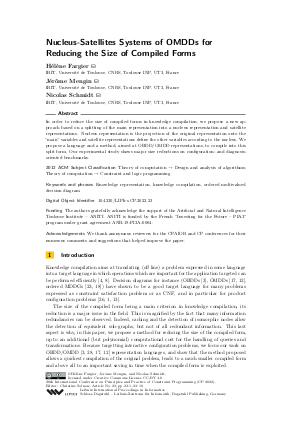LIPIcs.CP.2022.23.pdf
- Filesize: 0.79 MB
- 18 pages

 Creative Commons Attribution 4.0 International license
Creative Commons Attribution 4.0 International license



























Feedback for Dagstuhl Publishing